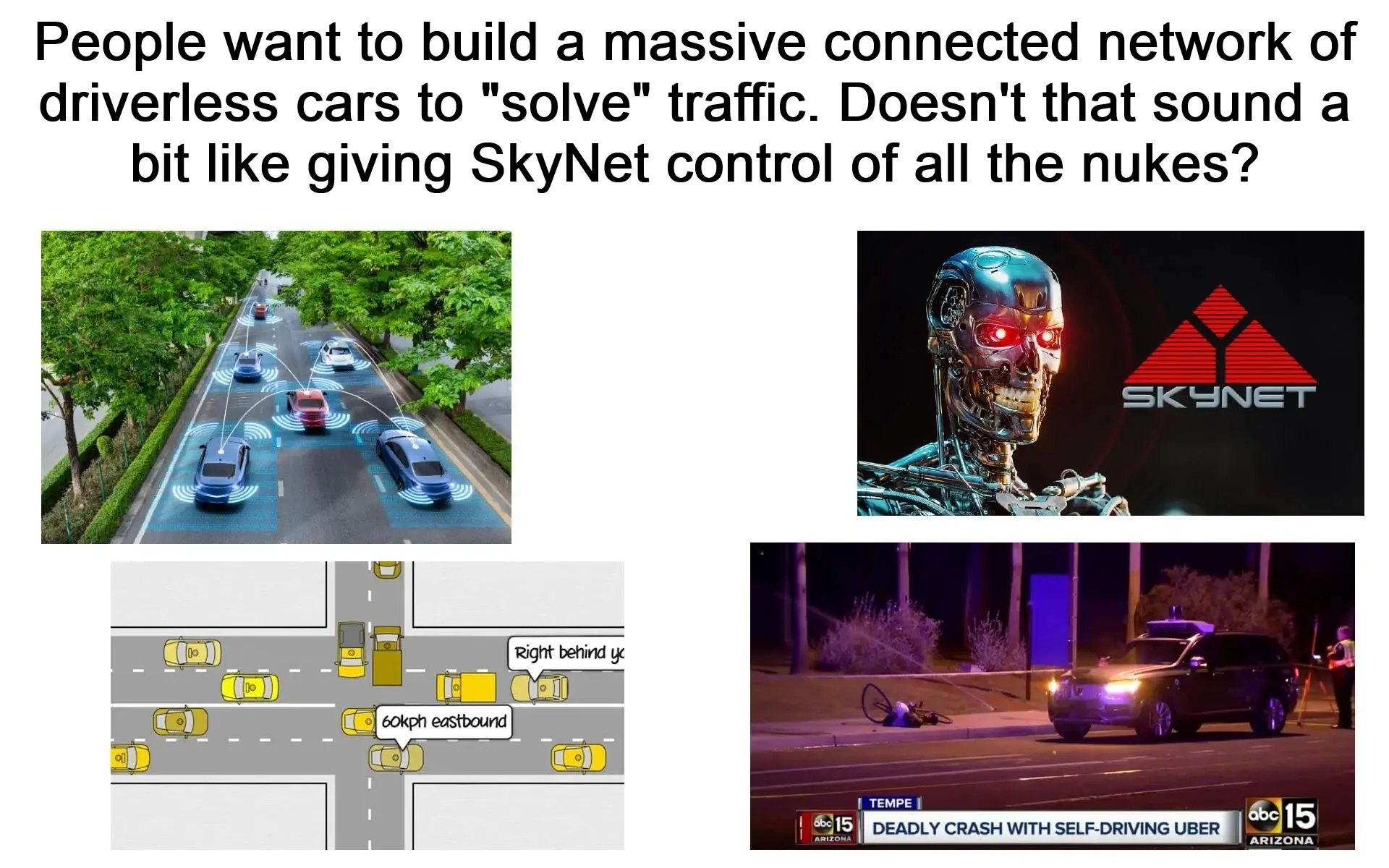Fuck Cars
A place to discuss problems of car centric infrastructure or how it hurts us all. Let's explore the bad world of Cars!
Rules
1. Be Civil
You may not agree on ideas, but please do not be needlessly rude or insulting to other people in this community.
2. No hate speech
Don't discriminate or disparage people on the basis of sex, gender, race, ethnicity, nationality, religion, or sexuality.
3. Don't harass people
Don't follow people you disagree with into multiple threads or into PMs to insult, disparage, or otherwise attack them. And certainly don't doxx any non-public figures.
4. Stay on topic
This community is about cars, their externalities in society, car-dependency, and solutions to these.
5. No reposts
Do not repost content that has already been posted in this community.
Moderator discretion will be used to judge reports with regard to the above rules.
Posting Guidelines
In the absence of a flair system on lemmy yet, let’s try to make it easier to scan through posts by type in here by using tags:
- [meta] for discussions/suggestions about this community itself
- [article] for news articles
- [blog] for any blog-style content
- [video] for video resources
- [academic] for academic studies and sources
- [discussion] for text post questions, rants, and/or discussions
- [meme] for memes
- [image] for any non-meme images
- [misc] for anything that doesn’t fall cleanly into any of the other categories
Recommended communities:
view the rest of the comments

That can be done more reliably with lidar. Adding BT and other wireless dependencies to critical control systems opens up new vulnerabilities and attack vectors. Sociopath hackers would use it to fake an imminent collision and cause crashes.
The most efficient path forward is higher density cities, less low density sprawl, and free mass transit (trains, light rail, and buses) to remove the dependency on private cars, then gradually upgrading to driverless only lanes and roadways as private vehicle traffic is reduced over time; much more realistic than waiting for tech companies and politicians to solve complex technical and regulatory problems that could take many decades.
The government should also be directing investment and subsidies to smaller single-person "pod" transport options too, as it'd be cheaper, easier, and more efficient overall if we could accommodate the majority of traffic in both directions within a single car lane, freeing up space for future transition work — after-all, most road traffic is a single person in a 5+ seater car.
Lidar can't do that. It can ping things but not beyond those initial ones. ? Correct it's radar but for light ? Obviously BT would create a whole new havock but it might also make life a lot easier because you know where things are that you can't see.
You can't see past the lorry in front of you but you can see a car is a few miles away up the road. You've time to pass. In the dark you can't see but BT can.
Hackers can't do shit. This always gets blown out. Hackers will screw systems and kill people, hackers will do this and that. Yeah I'm sure maybe a hundred can actually do that. So you've got 100 deaths.
I think there's already been 30 deaths on our roads this year. I think the hacker thing is a red herring.
Absolutely agreed but I don't live in a city so none of those things help me. Cities are pretty easy to solve some traffic woes. But for country it's much harder and where I need driverless.
Absolutely agree. I was just thinking about this the other day. I just need a tiny transport vehicle for me. I don't need 5 seats and a boot 90% of the time.